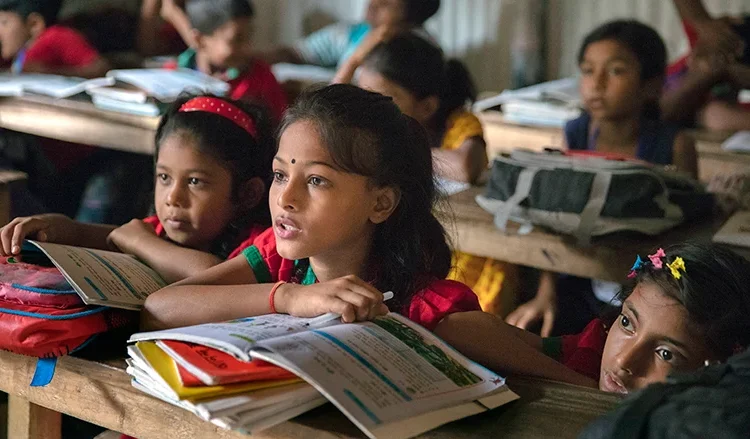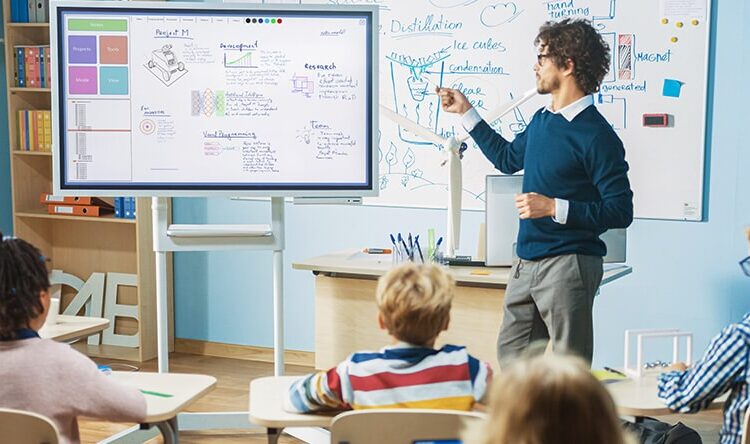The increasing demand for high-quality early childhood care has spurred the development of innovative online early childhood education programs in Minnesota. With flexibility in scheduling and course delivery, online learning has emerged as a popular option for many students. However, it may lack the hands-on experience that traditional classroom settings provide. This article compares online and in-person programs, outlining the advantages and disadvantages of each approach while offering insights into the various educational pathways available for aspiring educators.
Toc
- 1. Program Options: Finding the Right Fit for Your Goals
- 2. Curriculum and Career Pathways: Preparing for Success in Early Childhood Education
- 3. Related articles 01:
- 4. Accreditation, Cost, and Financial Aid: Making Your Education Affordable
- 5. Student Experiences and Success Stories
- 6. Finding the Right Early Childhood Education Program for You
- 7. Related articles 02:
- 8. Frequently Asked Questions (FAQ)
- 9. Conclusion

Program Options: Finding the Right Fit for Your Goals
When exploring early childhood education programs in Minnesota, it’s essential to understand the various options available to you. Each type of program offers unique benefits and potential career paths, catering to different educational and professional aspirations.
Associate’s Degrees: A Foundation for Future Success
In Minnesota, students can pursue either an Associate of Science (A.S.) or an Associate of Applied Science (A.A.S.) degree in early childhood education.
- A.S. Degree: This degree primarily prepares students for transfer to a four-year institution, such as the University of Minnesota, where they can pursue a bachelor’s degree in early childhood education. The curriculum focuses on foundational subjects like child development, early learning strategies, and guidance techniques, ensuring alignment with the Minnesota Department of Human Services educational requirements.
- A.A.S. Degree: Designed for those looking to enter the workforce quickly, the A.A.S. degree equips students with practical skills necessary for immediate employment in childcare settings. Students learn about classroom management, health and safety regulations, and childcare practices, which are vital for success in the field.
Comparing the Two Degree Types
While both the A.S. and A.A.S. degrees offer valuable education, they cater to different career trajectories. Graduates with an A.S. degree may pursue roles such as preschool teachers or further education at a four-year institution, potentially earning salaries ranging from $35,000 to $50,000 annually, depending on their degree level and experience. Conversely, A.A.S. graduates can step directly into roles such as childcare providers or family childcare operators, with starting salaries typically between $28,000 and $40,000. Understanding the differences in educational focus and potential job titles will help you make an informed decision based on your career goals.

Short-Term Diplomas and Certificates
For individuals seeking a rapid entry into the early childhood education workforce, diploma and certificate programs are excellent alternatives. These programs are particularly beneficial for those currently employed in childcare settings who wish to enhance their qualifications or for new students eager to begin their careers.
Typically, diploma and certificate programs cover essential subjects such as child development, effective family communication, and fundamental classroom management techniques. While these programs provide valuable skills, they may limit career advancement opportunities compared to degree programs.
Online Learning vs. In-Person Instruction
When deciding on early childhood education programs, you must consider whether online or in-person learning is the right fit for you.
- Online Learning: The flexibility offered by online courses allows students to balance their studies with work and family commitments. Searching for “Early Childhood Education degree online MN” reveals many options for those unable to attend traditional classes. Online programs can be particularly appealing for individuals seeking a more adaptable learning environment. However, it’s crucial to verify the accreditation of online programs, as the quality of education can vary significantly. Look for programs accredited by organizations such as the Council for the Accreditation of Educator Preparation (CAEP) or the National Association for the Education of Young Children (NAEYC).
- In-Person Instruction: Conversely, in-person classes facilitate direct interaction with instructors and peers, enhancing the educational experience through hands-on activities and immediate feedback. The choice between online and in-person instruction ultimately depends on your learning preferences and personal circumstances. Some online programs also offer robust virtual labs and simulations that can provide valuable hands-on experience, making them a viable option for those who may be concerned about the lack of physical classroom interaction.
Curriculum and Career Pathways: Preparing for Success in Early Childhood Education
A thorough understanding of the curriculum components within early childhood education programs is crucial for preparing for a successful career in this field.
Core Curriculum Components
Most early childhood education programs in Minnesota share common core curriculum components that cover essential areas of study. Key subjects typically include:
- Child Development Theories: Knowledge of various child development theories enables educators to tailor their approaches to meet the diverse needs of young learners.
- Early Learning Pedagogy: This area emphasizes teaching strategies that promote effective learning experiences for children in early childhood settings.
- Health and Safety Protocols: Familiarity with health and safety regulations ensures that educators can create safe learning environments for children.
- Inclusive Practices: Equipping early childhood educators to work with children of varying abilities and backgrounds is essential in today’s diverse classrooms.
Current Trends: Early Childhood Mental Health
An emerging trend within early childhood education is the growing emphasis on mental health. Curricula are increasingly incorporating training on social-emotional development and mental health awareness, preparing educators to support children’s emotional well-being. This focus is essential, as early intervention can significantly impact a child’s overall development and future success. Educators equipped with this knowledge can better address the mental health needs of young learners, fostering a supportive and nurturing environment.
Specialized Tracks and Electives
Many early childhood education programs offer specialized tracks or elective options that allow students to customize their education according to specific interests. These can include concentrations on different age groups—such as infants, toddlers, or preschoolers—or focus areas like special education or innovative learning approaches (e.g., Montessori or Reggio Emilia).
By selecting electives that resonate with your career aspirations, you can enhance your expertise and improve your employability in niche areas of early childhood education.
Career Opportunities and Job Outlook

Graduates of early childhood education programs in Minnesota can pursue various career paths, including:
- Preschool Teacher: Responsible for delivering educational content and facilitating play-based learning in early childhood settings.
- Childcare Provider: Works directly with children in daycare centers, providing care and supervision.
- Family Child Care Provider: Operates a home-based childcare service, offering personalized care for small groups of children.
- Program Director: Oversees the operation of childcare centers, ensuring compliance with regulations and managing staff.
The job outlook for early childhood education professionals is promising, with significant growth projected in the coming years. According to data from O*Net Online, numerous job openings are anticipated due to the increasing demand for quality early childhood education services. Additionally, salaries can vary by geographic location and experience. For example, preschool teachers in Minnesota earn an average salary of around $40,000, while family childcare providers may earn approximately $30,000 to $35,000, depending on their business model and clientele.
1. https://longhaichem.vn/mmoga-early-education-masters-programs-your-path-to-leadership/
2. https://longhaichem.vn/mmoga-data-science-certificate-programs-your-path-to-a-rewarding-career/
4. https://longhaichem.vn/mmoga-masters-in-educational-leadership-online-programs/
Current Trends: Increased Demand for Bilingual Educators
Another noteworthy trend is the growing demand for bilingual early childhood educators in Minnesota, particularly given the state’s diverse population. Educators who can communicate effectively with children and families in multiple languages are increasingly sought after in early childhood settings. This trend reflects a broader commitment to inclusivity and accessibility in education, as bilingual educators are instrumental in supporting the needs of multilingual families and fostering a culturally responsive learning environment.
Networking and Professional Development
Building a professional network within the early childhood education field can greatly enhance your career prospects. Networking and professional development opportunities include joining organizations such as the National Association for the Education of Young Children (NAEYC) or the National Child Care Association (NCCA).
Participating in conferences, workshops, and local events can help you connect with other professionals, share best practices, and stay informed about job openings in your area.
Accreditation, Cost, and Financial Aid: Making Your Education Affordable
Understanding the financial aspects of early childhood education programs is vital for prospective students.
Accreditation and Program Quality
Accreditation plays a crucial role in determining the quality of early childhood education programs. Accredited programs meet specific industry standards, ensuring that students receive a high-quality education.
When researching programs, seek out those accredited by recognized organizations, as this can enhance your employability and provide a solid foundation for further education. In Minnesota, look for programs accredited by the Minnesota Department of Human Services or the NAEYC.
Tuition and Fees
Tuition costs for early childhood education programs in Minnesota can vary significantly depending on the institution and program type. For instance, Dakota County Technical College (DCTC) charges approximately $191.98 per credit for an A.S. or A.A.S. degree, with additional fees for textbooks and student services.
It’s essential to factor in all costs, including criminal background study fees, which are typically required for anyone working with children. Understanding the total financial investment can help you make informed decisions about your education.
Financial Aid Opportunities
Numerous financial aid options are available for students pursuing early childhood education programs. The Free Application for Federal Student Aid (FAFSA) is a primary resource for securing grants, loans, and scholarships.
Additionally, some institutions may offer “free early childhood education programs” or funding opportunities for students who meet specific criteria. Be sure to explore all available financial aid options to make your education more affordable.
Transferring Credits
If you plan to transfer credits between institutions, understanding the transfer process is crucial. For example, DCTC provides resources to assist students in navigating the transfer process to four-year universities like the University of Minnesota.
Being proactive in securing your credits can save you time and money as you progress through your educational journey.
Student Experiences and Success Stories
Real-life testimonials from current students and alumni can offer valuable insights into the early childhood education programs available in Minnesota.
Many students express appreciation for the supportive learning environment and the practical knowledge gained through their coursework. Alumni often share how their education prepared them for real-world challenges and equipped them with essential skills for their careers.
One graduate emphasized the significance of hands-on learning experiences, stating that the projects completed during the program helped them build a robust portfolio that impressed potential employers.
Moreover, students frequently highlight the accessibility of instructors, noting that personalized support from faculty significantly contributed to their success. This sense of community can be a deciding factor for many students when selecting a program.
Finding the Right Early Childhood Education Program for You
Identifying the right early childhood education program can be a daunting task, but several strategies can simplify the process.
Searching for Programs
To find suitable early childhood education programs, utilize online resources and search terms such as “early childhood education programs near me” or “early childhood education programs in Minnesota.”
1. https://longhaichem.vn/mmoga-early-education-masters-programs-your-path-to-leadership/
2. https://longhaichem.vn/mmoga-masters-in-educational-leadership-online-programs/
5. https://longhaichem.vn/mmoga-data-science-certificate-programs-your-path-to-a-rewarding-career/
These searches can help you locate institutions offering programs that align with your career goals. Additionally, consider reading reviews and testimonials from current students and alumni to gauge the program’s quality and support services.
Visiting Campuses and Attending Information Sessions
Once you have narrowed down your options, consider visiting campuses and attending information sessions. Meeting with program advisors can provide insights into course offerings, faculty, and the overall campus culture.
These visits can also give you a feel for the learning environment, helping you determine if a particular institution is the right fit for you. Don’t hesitate to ask questions about class sizes, faculty qualifications, and available resources.
Frequently Asked Questions (FAQ)
Many prospective students have common questions when considering early childhood education programs in Minnesota. Here are some frequently asked questions:
What are the admission requirements?
Admission requirements vary by institution but typically include a high school diploma or GED. Some programs may also require background checks.
Are internships available?
Many programs incorporate internships or practicum experiences as part of the curriculum, providing valuable hands-on training in real-world settings.
What support is available for students with disabilities?
Institutions often have support services for students with disabilities, including accommodations for coursework and exams.
How can I obtain an Early Childhood Education License in Minnesota?
To obtain an Early Childhood Education License in Minnesota, you must complete an accredited program and pass the required licensure exams.
What are the benefits of obtaining an accredited early childhood education program?
Accredited early childhood education programs are recognized for meeting specific educational standards, which can enhance your employability and prepare you for further education. Graduating from an accredited program often opens doors to more job opportunities and may be a requirement for obtaining your Early Childhood Education License in Minnesota.
Conclusion
Choosing the right early childhood education program is a significant step toward a fulfilling career. By carefully considering program options, curriculum, career goals, and financial resources, you can find a program that aligns with your aspirations. Whether you choose an associate’s degree, diploma, certificate, or online learning, remember to prioritize accreditation and explore all available financial aid options. Start your research today and begin your journey toward making a positive impact on the lives of young children. Use resources like the University of Minnesota website and search terms like “best early childhood education programs” to further your search.
In summary, early childhood education programs are vital for developing the next generation of educators. With a variety of pathways available, including traditional and online options, aspiring educators can find the right fit to meet their career goals. Whether you are looking to enter the workforce quickly or plan to further your education, Minnesota offers a wealth of opportunities in early childhood education that can lead to a rewarding career.










